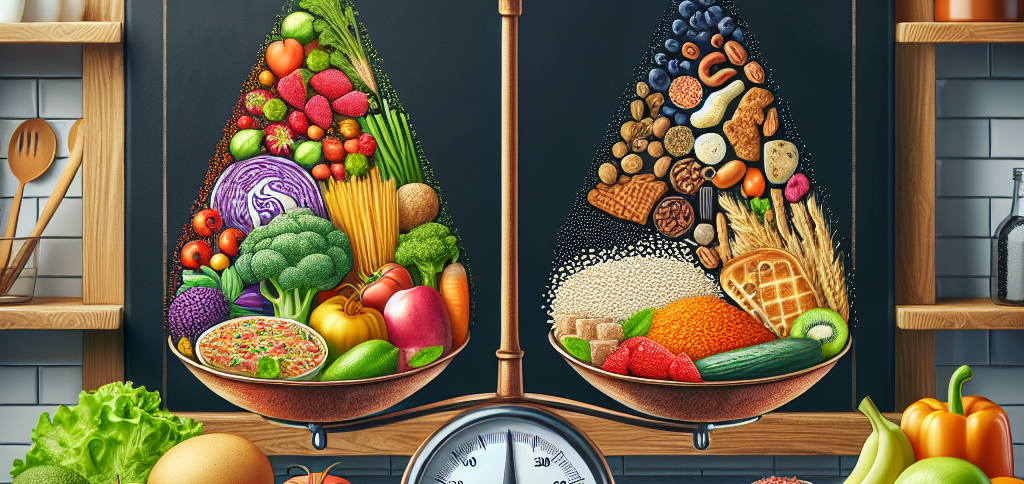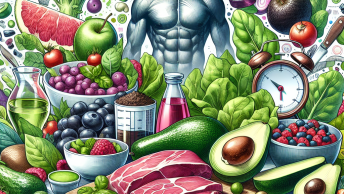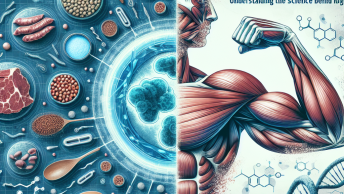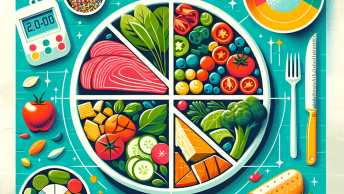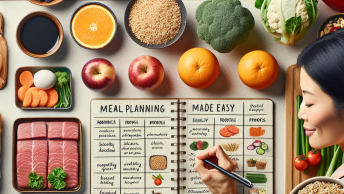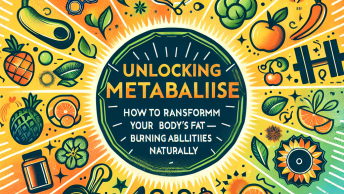In the quest for a healthier lifestyle, fat loss is often at the forefront of people’s minds. Whether your goal is to improve your overall health, boost energy levels, or enhance your physical appearance, designing a fat loss diet is crucial. Here are ten essential tips to guide you in creating and maintaining an effective fat loss diet.
1. Understand Your Caloric Needs
Before embarking on any diet, it’s essential to understand your caloric needs. Your body requires a certain number of calories to maintain its weight, and if you want to lose fat, you need to consume fewer calories than you burn. Use online calculators to find your Basal Metabolic Rate (BMR) and adjust your caloric intake according to your activity level.
2. Prioritize Whole Foods
Whole foods are your best bet when trying to lose fat. These foods—such as fruits, vegetables, whole grains, lean proteins, and healthy fats—are nutrient-dense and often lower in calories compared to processed foods. Eating a diet rich in whole foods can help control hunger and promote satiety, making it easier to stick to your calorie goals.
3. Incorporate Lean Protein
Protein plays a vital role in a fat loss diet. Not only does it help to build and repair muscle, but it also significantly contributes to feelings of fullness. Incorporate high-quality protein sources like chicken, turkey, fish, beans, and tofu into your meals. Aim to include protein with every meal and snack for sustained energy and appetite control.
4. Control Portion Sizes
Portion control is critical for fat loss. Even healthy foods can contribute to weight gain if consumed in large quantities. Consider using smaller plates, measuring out serving sizes, and paying attention to hunger cues. With practice, you’ll learn to recognize appropriate portion sizes, making it easier to adhere to your diet.
5. Stay Hydrated
Drinking plenty of water is often overlooked in fat loss diets, yet it is incredibly effective. Staying hydrated can curb hunger and prevent overeating, as our bodies sometimes confuse thirst with hunger. Aim for at least eight 8-ounce glasses of water a day, and consider starting your meals with a glass of water to help control portion sizes.
6. Limit Added Sugars and Refined Carbs
Sugary snacks and refined carbohydrates are often high in empty calories and low in essential nutrients. Reducing your intake of these foods can drastically lower your overall caloric intake and promote fat loss. Opt for whole-grain foods and natural sweeteners when you need to satisfy your sweet tooth.
7. Plan and Prep Your Meals
Meal planning and prepping are essential strategies for sticking to a fat loss diet. Taking the time to plan your meals and snacks helps avoid spontaneous, unhealthy eating decisions. Consider dedicating a day each week to prepare meals in advance, making it easier to choose healthy options throughout the week.
8. Incorporate Healthy Fats
Not all fats are created equal. Healthy fats, like those from avocados, nuts, seeds, and olive oil, can help keep you satiated and provide essential nutrients. Including healthy fats in your diet can help control cravings and promote overall health, making them a beneficial component of a fat loss diet.
9. Monitor Your Progress
Tracking your progress can keep you motivated and help you identify what is working and what isn’t in your diet. Use apps, journals, or photographs to document your journey. Keep in mind that fat loss is not linear, and progress can come in various forms, including improved mood, energy levels, and fitness performance.
10. Click Here to learn more!
Finally, if you’re looking for a comprehensive approach to fat loss, understanding various strategies, and implementing sustainable changes, don’t hesitate to explore further resources. For a deeper dive into effective fat loss methods and guidance tailored to your unique needs, Click Here to learn more.
Conclusion
Creating a successful fat loss diet involves understanding your nutritional needs, making informed food choices, and developing sustainable habits. Remember that weight loss takes time and patience; it’s about making gradual changes that you can maintain. By following these ten tips and taking an informed approach, you will be well-equipped to achieve your fat loss goals and improve your overall health. Embrace the journey, celebrate your progress, and remember that every small step counts toward a healthier you.
